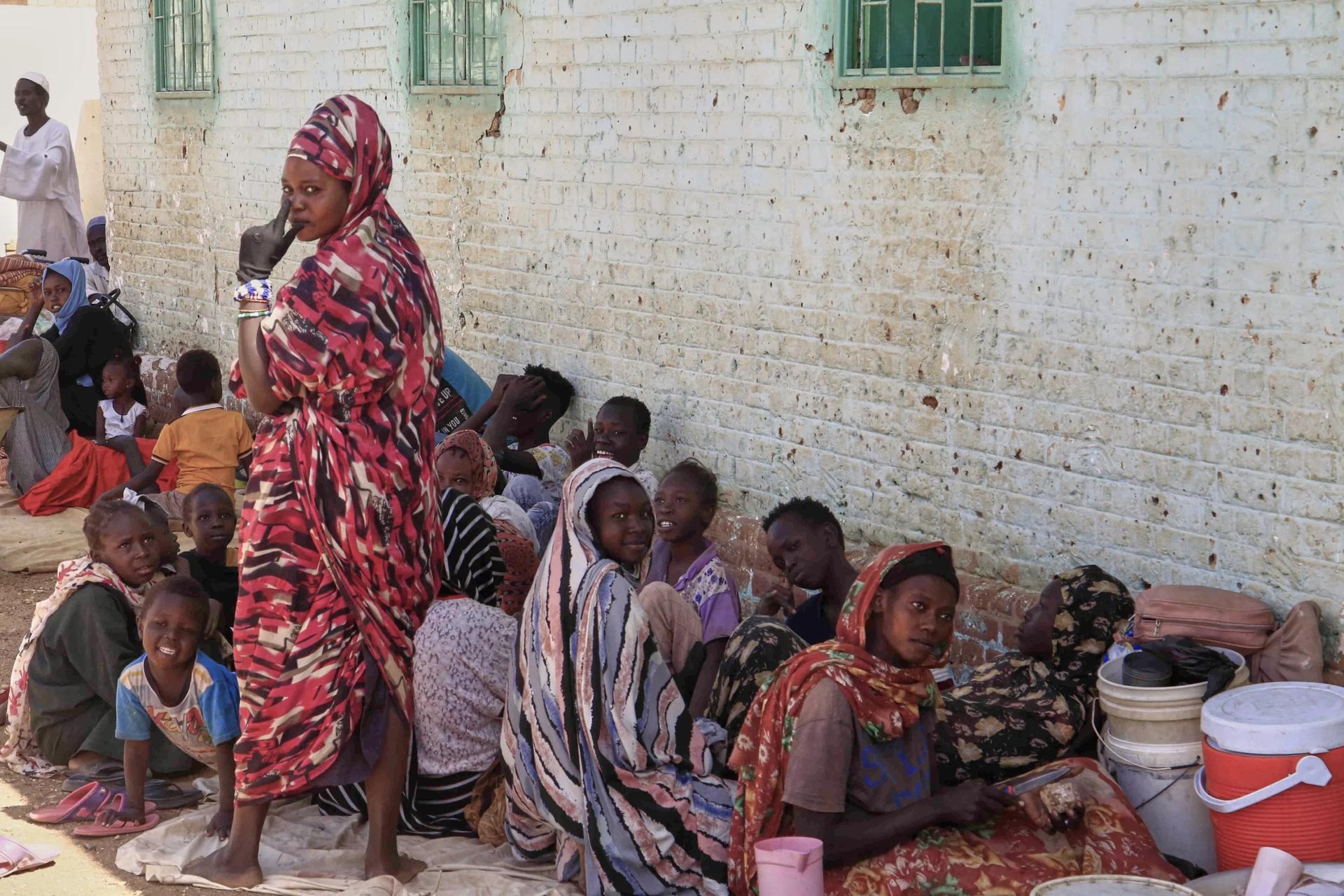Over 100 Civil Society Organizations (CSOs) and humanitarian actors, including several Catholic entities, have warned that more than a quarter-million people may perish, many of them children, as a paramilitary force commanded by a leader of a recent coup weaponizes starvation.
An estimated 260,000 civilians, half of them children, are besieged in the Sudanese town of El Fasher, surrounded by Rapid Support Forces (RSF) loyal to one of two principal coup-leaders who have fallen out.
For over 500 days, the RSF has sealed off the North Darfur capital, constructing over 38km of earthen walls, or berms, to systematically block all food, medicine, and humanitarian aid from entering.
“The berms will allow the RSF and allied militias to continue to strangulate the civilian population by blocking the entry of food and medicine into the city and obstructing civilians from fleeing,” the coalition of CSOs and humanitarian actors that include Catholic entities like the Denis Hurley Peace Institute of the South Africa Bishops’ Conference and Pax Christi USA said in a collective statement October 2.
The United Nations Children’s Fund, UNICEF has called the unfolding situation “a devastating tragedy.”
“We are witnessing a devastating tragedy – children in Al Fasher are starving while UNICEF’s lifesaving nutrition services are being blocked,” said UNICEF Executive Director Catherine Russell.
“Blocking humanitarian access is a grave violation of children’s rights, and the lives of children are hanging in the balance. UNICEF continues to call for immediate and full access, including through expanded pauses in the fighting to allow us to reach all children in need. Children must be protected at all times, and they must have access to life-saving aid.”
UNICEF says further that since the siege began in April, 2024, it has witnessed more than 1,100 “grave violations”, including the killing and maiming of more than 1,000 children. It said dozens have been subjected to sexual violence, while others have been abducted or recruited by armed groups. The real scale, the agency said, is likely far higher.
The CSOs and humanitarian actors say the town has been transformed into an open-air prison with no exit routes amid the daily shelling, subjecting civilians to famine, a deadly cholera outbreak, and the constant threat of atrocity crimes, thereby creating a humanitarian catastrophe of monumental proportions.
“Testimony from civilians who recently fled El Fasher recount that men and adolescent boys are being killed on the road and that leaving El Fasher is now more dangerous than staying despite the constant daily shelling,” the statement said.
What’s happening in El Fasher reflects the broader picture of the war in Sudan which broke out in April 2023.
After the overthrow of President Omer Al Bashir in 2019, a joint military-civilian government was established, but that too was overthrown in another coup in October 2021. The two men at the center of the coup – head of the Sudanese Armed Forces Abdel Fattah al-Burhan and Mohamed Hamdan Dagalo, leader of the RSF – soon disagreed over plans to absorb the RSF into the military to form a new army: both men wanted to hang on to their positions of power, and this triggered the current conflict.
It initially erupted in the capital Khartoum, but soon spread to other parts of the country, including the RSF stronghold of Darfur region.
At least 40,000 people have since been killed and over 13 million displaced, according to the UN. 25 million more people continue to experience acute hunger.
“The situation in Sudan is dire,” said Fr. John Gbemboyo, the Pastoral and Social Communications Coordinator at the Bishops’ Conference of Sudan and South Sudan.
“One of the reasons that make it hard to find a quick peaceful solution to the crisis in Sudan is that both sides are aiming for victory rather than negotiations. It is either victory or death, and so the will to work for a win-win solution is far from reach, and the country is being brought to its knees,” he told Crux.
The coalition of CSOs and humanitarian actors in their October 2 letter blasted the international community for what it said has been a “global paralysis in the response to the Sudan war” which is contributing to “the loss of lives across the country.”
“Words of condemnation will not save lives in El Fasher,” it said, and urged the international community to take “decisive action” to prevent the continued massacre of civilians trapped in El Fasher.
The civil society organizations and humanitarian actors noted that the greatest solution to address civilian protection threats in Sudan is a comprehensive nationwide ceasefire.
“Whilst negotiations continue, action must be taken to immediately address the protection needs of the population in El Fasher,”it stated.
It underscored the need for a humanitarian access plan to be developed and executed “as a matter of urgency, in accordance with international humanitarian law, and with binding agreements from all parties to the conflict to respect and uphold the safety of civilians.”
“Negotiations on safe passage and humanitarian access should be actively pursued by diplomatic missions, regional entities, and international stakeholders to ensure unimpeded civilian evacuation, “it said.















